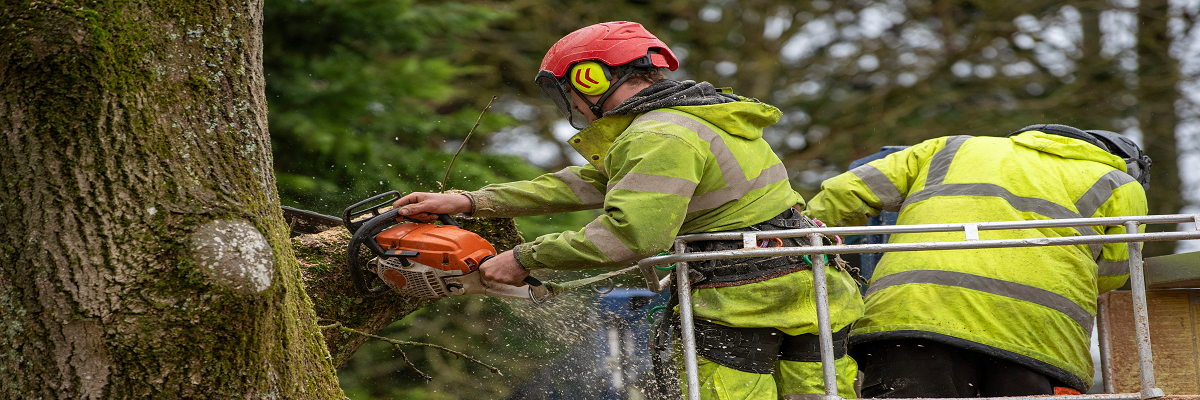Land Business Update | Week Commencing 22 July 2024
Farming
Farming secretary on Labour’s support for the sector
Steve Reed gave his first interview to the farming press at the Great Yorkshire Show. Much of what he said followed previous announcements and the Labour manifesto. Key points from his interview with the BBC’s Farming Today include:
“I think there should be direct support for food producers, not just from the government. So in the shift from Basic Payments to the new schemes, I want to look at the impact data on how those are operating. But that was never intended to be the only way we support food producers and farmers. There was also supposed to be a look at supply chain fairness and the last government just did not do that so we will look at it, and all the other measures that we are looking at in our New Deal for Farmers, to help farmers reduce their costs and become financially more sustainable.”
He also mentioned:
- Fighting for the sector in the spending review.
- Ruling out trade deals that undermine British farmers.
- Seeking to renegotiate the EU veterinary agreement to reduce barriers to trade and reduce costs.
- Using the power of public procurement to buy British produce.
- Setting up a cross-government rural crime strategy between the Home Department and Defra.
- “We will not create more instability. We will look at how we can make it work better.”
- Cutting farmers’ energy bills, to reduce costs through GB Energy.
Labour’s legislative programme in the King’s Speech
The programme is mainly new bills although there are some that are being revived from the previous government’s programme. The ones that directly affect rural property are:
- Planning and Infrastructure Bill. Reform of the planning system and house building is a key mission for the government and is linked to its targets for higher economic growth. The programme includes significantly increasing infrastructure for renewable energy and reform of local planning committees to streamline processes. Many commentators have noted the potential friction between development and improving the environment, and Angela Rayner has written to environmental organisations about this. A solution is to legally align the planning system to the Climate Change and Environment Acts, so every planning decision supports net zero and nature.
- Renters’ Rights Bill. This will implement many measures in the previous government’s Bill. It will end the ability of landlords to serve section 21 notices on tenants to end tenancies. It is unclear whether court processes to provide landlords with an effective route to evict troublesome tenants will be in place before the ban on section 21 notices.
- English Devolution Bill. This aims to move decision making power to local leaders, including for infrastructure planning, transport, skills and employment support.
- Employment Rights Bill. This contains many of the New Deal For Working People measures, including banning zero-hours contracts and giving workers immediate access to parental leave and sick pay.
- Great British Energy Bill. This will set up a new publicly-owned energy production company. It will own and operate power projects including solar and wind with the private sector.
- The Crown Estate Bill. This will give the Crown Estate greater ability to borrow and invest, including in renewable energy.
- Water (Special Measures) Bill. This is aimed at improving water quality in our rivers, lakes and seas, and includes greater powers to take action against failing water companies.
- Draft Leasehold and Commonhold Reform Bill. This will allow leaseholders to extend their lease and buy their freehold.
Whole Farm Plan rules for farms in Scotland
More detail has been published on changes to agricultural support payments that come into effect in 2025. To continue to receive Basic Payments in 2025, farmers must confirm on their annual form that they have that they have completed at least two of the following ‘Whole Farm Plan’ activities by 15 May 2025:
| Carbon audit | All conducted within the five-year period before May 2025 |
| Biodiversity audit | |
| Soil analysis | |
| Animal health and welfare plan | Which should be renewed annually |
In our experience, the ones which are of most practical use are the animal health plan, soil analysis and carbon audit. Grants are still available for the latter two through the Preparing for Sustainable Farming scheme. Other changes for 2025 include a new set of cross-compliance conditions which prohibit some activities on peatland and wetland areas, and a maximum calving interval of 410 days to receive payments under the Scottish Suckler Beef Support Scheme (SSBSS). Please contact Stephen Whiteford if you would like to discuss any of the above.
Update on the Welsh Sustainable Farming Scheme
The Welsh Government has made some more announcements on the timetable for introducing the Scheme, which is the new main farming support scheme for Welsh land managers. The start of the Scheme has been postponed for a year until 2026 to give more time for consultation. In 2025, support will be available through a number of schemes:
- Habitat Wales Scheme, which is open to all eligible farmers.
- Existing Habitat Wales Scheme Commons agreements, can be extended for 2025.
- Organic Support Payment, will be maintained for 2025.
- Farming Connect, has been extended to 2026. It is an advice and innovation support scheme.
- A new Integrated Natural Resources Scheme, which supports partnerships delivering landscape-scale nature-based solutions. It continues support for this type of project before the introduction of SFS Collaborative Actions option.
In addition, the Government will carry out a data confirmation exercise with farmers who decide to participate to generate a more accurate picture of habitat and tree cover across farms.
Total Income from Farming from all farms in England fell by 19% in 2023
TIFF is a measure of the total combined profit generated by all farms in England. The fall was from the recent record level set in 2021 and the £4.5bn profit in 2023 is above the five-year average. It was mainly due to a fall in the value of crops produced, as yields and commodity prices were lower. Profits from livestock were largely unchanged. An interesting aside to the data is to note that the area of wheat grown fell by 5.3% compared with 2022, which shows how cropping patterns change year-to-year, which must be taken into account in discussions about the effect of policies like agri-environment schemes on food production.
Farming lags behind other sectors in cutting emissions
Progress on emissions reductions for farming and land use is significantly off target. According to the Energy and Climate Intelligence Unit (ECIU) the sector is likely to become the fourth largest source of emissions in the UK this year, falling behind electricity generation, and could become the biggest emitter by the mid-2030s. The analysis reinforces the findings of the Climate Change Committee’s progress report.
Forestry
Forestry and Arboriculture Training Fund is reopening shortly
It provides 100% funded grants for practical courses in forestry and arboriculture. It is available for people to improve their skills and also those considering a change of career. It is a great opportunity for farms and estates to refresh staff skills or train staff in new skills. Courses include planning and planting a new woodland, coppicing, deer stalking, chainsaw maintenance, marketing and selling timber, and arboriculture. Demand is expected to be high so applicants are advised to visit the Fund portal ahead of the launch date to check the course list.
British woodlands survey on understanding and supporting public access to woodlands
The 2024 survey is now open. In England, the England Trees Action Plan seeks to ensure that the provision of safe public access is a feature of as many woodlands as possible. Whilst this Plan only applies to England, experiences in Scotland and Wales are of interest to the survey and provide important comparisons. The survey takes 30-40 minutes for a land manager to complete so make need a couple of cups of tea to do. It is being carried out by Forest Research and the Sylva Foundation, as in previous years.
Energy
Welsh government launches organisation to develop renewables projects on publicly owned land
The organisation, called Trydan Gwyrdd Cymru, will work with Natural Resources Wales to develop wind power parks on the nation’s woodland estate, with consultations with communities starting soon. It aims to generate at least 250 MW of new renewable energy capacity by 2030. The Welsh Government has also published its Heat Strategy for decarbonising heating in homes, commercial properties and industry. Heating accounts for 50% of energy use in Wales, 75% of which is generated using fossil fuels.
Property and rural economy
Adapting Historic Buildings for Energy and Carbon Efficiency
New guidance from Historic England encourages local councils to allow heat pumps, solar panels and insulation for historic buildings. It has been called a turning point by climate and building experts. Listed homes and homes in conservation areas account for @ 5% of total UK carbon emissions. Historic England said that the guidance coincides with “greater certainty” from the new government on national climate change strategy. Its director of policy and evidence said heat pumps were “an effective solution for most historic buildings if designed, installed and used well”, and was critical of some negative press that favours gas-fired boilers.






